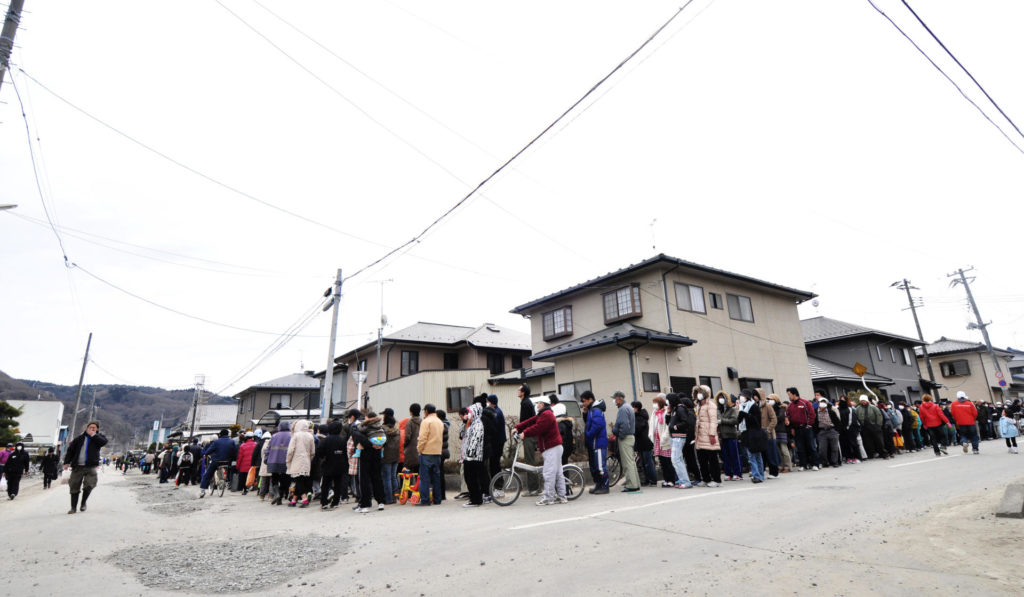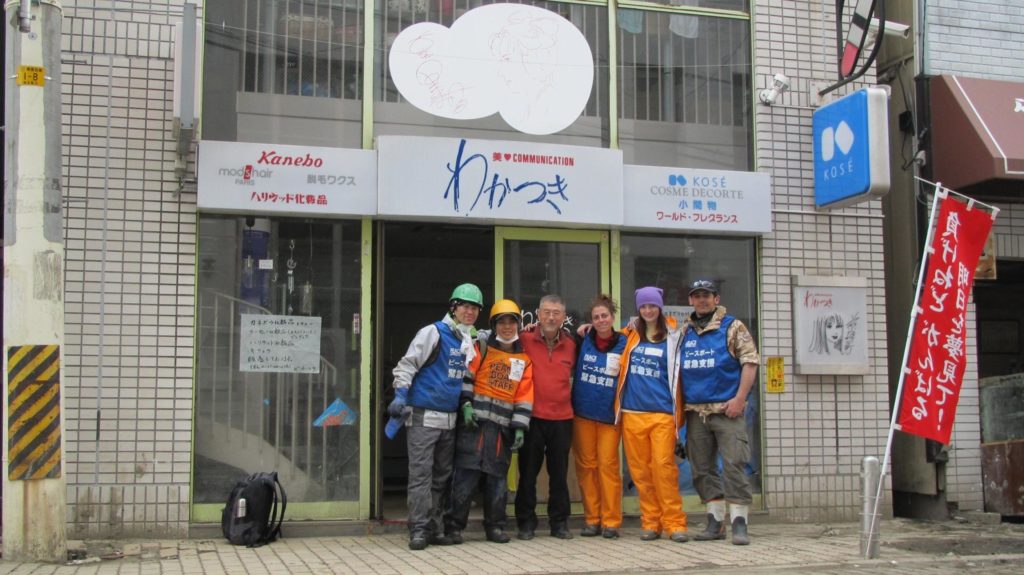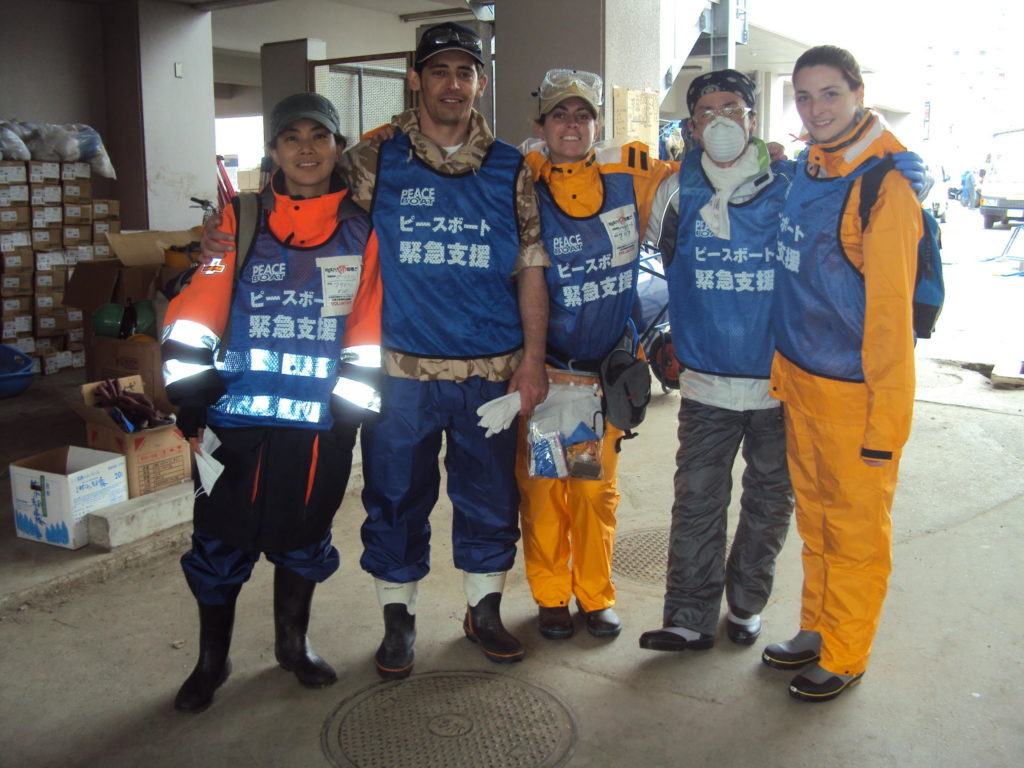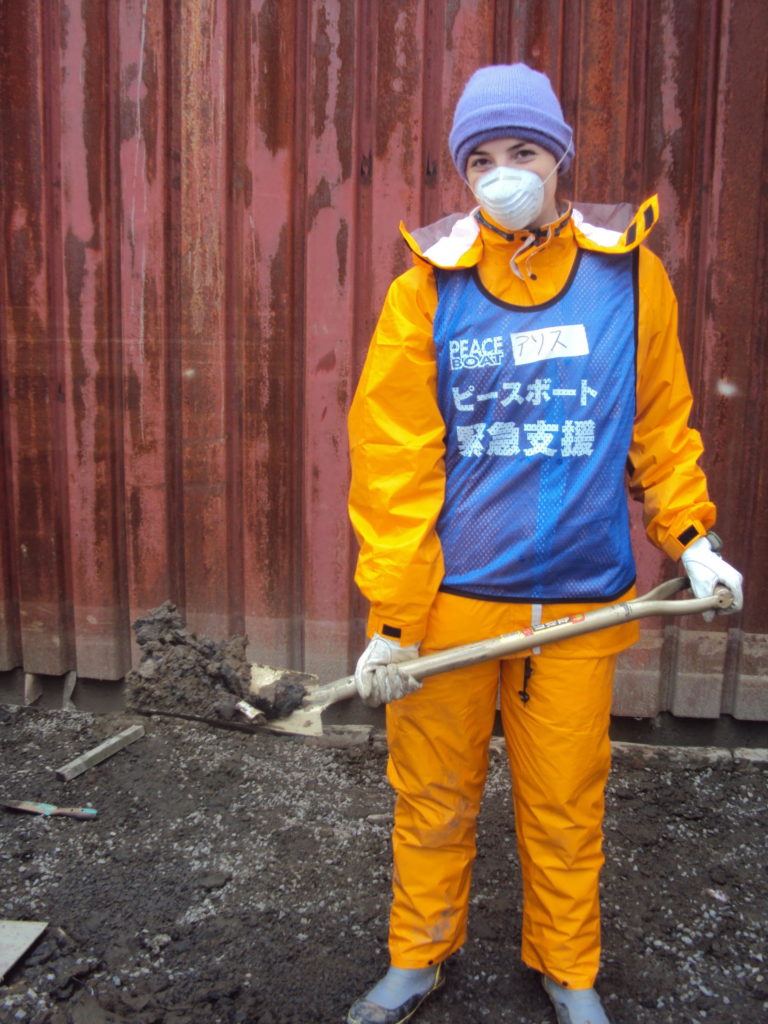On a bright, shiny Saturday night in Tokyo, several hundred volunteers carrying backpacks the size of small children gathered on the corner of a street in Shinjuku. We had spent the day packing our raingear, dust masks, helmets, steel toed-boots, goggles and enough Calorie Mate to feed a small army. Now we were hauling our bags on the overnight bus on which we would hopefully catch some sleep before waking up in Ishinomaki.

Ishinomaki is one of the larger cities in Tohoku. It was also one of the hardest hit by the tsunami. Riding through the streets, my initial impression was of a town of damaged and filthy houses. Mud and broken possessions littered the streets, and battered cars were rammed at sickening angles into buildings barely still standing.
Many houses remain uninhabitable; structurally damaged and caked in toxic sludge. Huge piles of debris are littered around town filled with wood, glass, clothes and manga comics. Occasionally, among the dark, dirty debris, a spot of color, such as a bright blue high-heeled shoe, reminds us this debris is filled with people’s possessions.
Our job as volunteers was mainly to help clean homes and businesses, so the people could return as soon as possible and begin, somehow, to rebuild their lives. The work was incredibly satisfying. It was also muddy and filthy. We would shovel tsunami sludge into bags and set them by the side of the road, working until the home, shop or school started to look as though people could live or work there again.
There was an incredible spirit of cooperation among the volunteers. I heard no raised voices, nor a single complaint. Everyone was smelly and tired, but we felt so good about the work, we didn’t care. We knew the work was important, and everyone pitched in.

For me, it was simply the best experience I have ever had. If I ever have doubts about the human race, I will think back to all the people I met, young and old, Japanese and non-Japanese, who decided to do their part to try to make things little better.
Standing in front of a newly cleaned building, we experienced a tangible feeling we were making a difference. However, our presence there was valuable in less obvious ways. The psychological scars survivors must mend are another challenge the communities face.
Every member of this community has suffered – having lost homes, friends, parents, spouses or children – and they struggle to come to terms with the disaster. It is crucial they talk about their experiences, but it is often too painful to talk to each other. As volunteers, we were trained to simply listen. We are not counselors, but provided a safe place for people to unburden themselves of their stories and begin to heal. We experienced this many times.

Our group, after cleaning the car park and sewer system from a cosmetics shop in the center of town, was rewarded with long, almost bone-crushing hugs from the owner, despite being covered in slimy mud from head to toe. Locals sent volunteers stories of thanks and told us seeing this work done had made them realize hope was not lost, that life could go on, they would reopen their shops, start selling fruit or go back to school.
We shared these stories at morning meetings, before we would set off from our campsite to do a full day’s work in town. If we ever lacked motivation, or felt our efforts were too small in the face of such devastation, these stories provided the motivation and reinforced how vital is volunteer work in Tohoku.

Tohoku desperately needs volunteers. With the disaster no longer in the headlines, the number of people coming to Ishinomaki has dropped dramatically since Golden Week. On behalf of the survivors, Peace Boat is reaching out to anyone who can spare a few days of their summer and continue this crucial work. We must continue to show people we care and that we will stand by them as long as it takes.
Summer Volunteering with Peace Boat
Who can volunteer? Anyone. Age, physical ability and language ability is not a problem. Peace Boat has a vast range of activities, from physically demanding mud clearing to lighter tasks such as cleaning photo albums or personal possessions. Bilingual leaders are organized for people with little or no Japanese language ability.
When? Peace Boat runs volunteering activities every week. We usually take people for one week stints from a Friday to the following Saturday, however shorter volunteering trips are available. All volunteers must attend an orientation before departure.
Where? Our orientations are in Tokyo. Our bus also departs from and returns to Tokyo.
What do you need? Volunteers should ask Peace Boat for a comprehensive up-to-date list of items you will need, as this can change. Currently, volunteers are asked to bring sturdy work boots, dust masks, strong rain gear and all the food you will need for the length of your volunteering trip.
Cost? The only cost for the volunteer trip is the bus: ¥5,000 return.
How? Visit the Peace Boat Website to find upcoming orientations and volunteer trips, then simply sign up. Web: http://peaceboat.jp/relief/volunteer/ e-mail: relief@peaceboat.gr.jp




